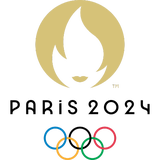
Rights group asks for worker-safety probe at Tokyo Olympics
TOKYO (AP) — A former Olympian and head of a human-rights group is asking the IOC and Tokyo Olympic organizers to investigate worker safety at venues being built for next year's games.
Mary Harvey is the CEO of the Geneva-based Centre for Sport and Human Rights, the type of organization that pressured Qatar to reform labor practices — particularly regarding migrant labor — for its 2022 soccer World Cup.
Tokyo has come under similar scrutiny since a report — "The Dark Side of the Tokyo 2020 Summer Olympics" — was published last month by the Building and Wood Workers' International union, which also investigated Qatar conditions.
The report alleges patterns of overwork, some workers without employment contracts, and what it characterized as a "culture of fear" that discouraged workers from reporting their employment conditions. Much of the attention was focused on foreign workers.
"To think this is going away is burying your head in the sand, and I'm concerned it's going to get worse," Harvey said in an interview with The Associated Press. "The heat of the summer months is upon us while construction deadlines are trying to be met. Someone dying or committing suicide shouldn't be acceptable to anyone."
Harvey, a goalkeeper on the 1996 United States women's Olympic soccer team, said she wanted to assist the International Olympic Committee "given our work and key learning from construction-related risks in Qatar."
"Everyone should be taking a serious look at the risks identified in BWI's report and, by everyone, I mean everyone who is a stakeholder, including the IOC, the Japanese government and construction companies," she added.
The report singles out work on the $1.25 billion national stadium, which is run by the Japan Sport Council — a national government body — and work at the Olympic Village, being built by the Tokyo Metropolitan Government. Those units will eventually be sold off as high-end apartments.
Local organizers, the city government and the Japan Sport Council said they have asked BWI "to provide more detailed information." A joint statement said it is "difficult to confirm the facts only with information contained in the currently published report."
For its part, BWI has called for outside inspections and said that its efforts "have been largely ignored, and workers and their trade unions have been met with hostility."
Ambet Yuson, the general secretary of BWI, said in an interview with the AP that the case needs "to be elevated to the IOC. We need to see what they will do about Tokyo and the Beijing 2022 Winter Olympics."
He credited Japan with having a "strong, organized labor system. They take pride in their own system. So being told they need to make sure they are up to the international level is different. They say: 'No, we are at the international level.' But migrant workers are something they don't know."
He added that Japanese officials "are in the denial stage that problems exist, but they exist."
Yuson cited an interview in Tokyo with a migrant worker from Vietnam who didn't speak or read Japanese. And there was no alternative language available.
"In Qatar you would see signs in different languages — Hindi, English and Arabic. So how can (migrant) workers be told about health and safety conditions?" Yuson asked.
In a statement, the IOC said "we take these issues very seriously and are committed to working with the relevant stakeholders to address them and find the appropriate solutions."
Many sports governing bodies have signed up to the UN Guiding Principles on Business and Human Rights , which spell out practices for businesses and government. They include soccer governing bodies FIFA and UEFA, the Commonwealth Games Federation, the International Paralympic Committee and Qatar's 2022 World Cup.
The IOC said that two years ago it added the UN guidelines to host city contracts that come into effect with the 2024 Paris Olympics. That excludes Tokyo, and the 2022 Winter Olympics in Beijing, where independent labor unions are barred by China's authoritarian government.
FIFA has been praised by human-rights leaders for reforms enacted in the wake of a 2015 corruption scandal. In a report requested by FIFA, Harvard University professor John G. Ruggie said FIFA "leapfrogs other major international sports organizations" in human rights measures.
The IOC said it works closely with the International Labour Organization, a UN agency that sets labor standards. The IOC said the ILO will discuss the problems with "relevant Japanese authorities."
The ILO's Tokyo office said general secretary Guy Ryder may meet Japanese government officials at an ILO conference on June 10-21 in Geneva. Ryder will be in Japan at the end of the month for the G20 meetings. He's also due back in Japan later in the year.
With an aging and declining population, Japan is short-handed in many industries. The government has provided more visas for construction workers tied to the Olympics, and in April started allowing more foreign workers to reside in the country.
The BWI report said almost half of the workers interviewed did not have formal contracts, and it found "dangerous patterns of overwork" at both high-profile venues. It said some workers at the Olympic Village reported working 28 consecutive days, and up to 26 straight at the national stadium.
The report said about 55,000 migrant workers are employed in the construction sector. It said most wages were half to one-third of those paid to Japanese workers.
The report also said some problems were made worse by looming deadlines with the Olympics opening July 24, 2020. Japan is spending at least $20 billion to prepare for the Olympics, about 70 percent public money.
The report noted that two workers have died on projects for the Tokyo Olympics.
Death by overwork, known as "karoshi," is a problem in Japan with employees often forced to work long hours despite government measures to try to prevent it.
